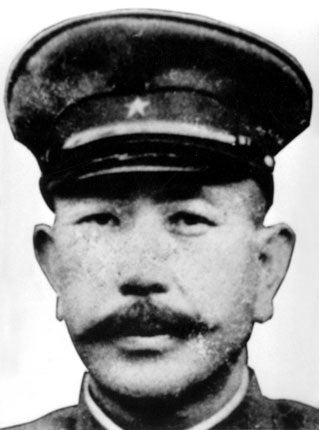The doctor who turned his back on a 'God-given' role to save life

Japanese army doctor Shiro Ishii ran the notorious Unit 731 and was responsible for gruesome human experiments designed to develop Japan's germ warfare systems. Like his Nazi counterpart, Josef Mengele, Ishii never faced justice. He escaped prosecution after the war because the United States offered immunity in return for information on the programmes on humans that they were unable to carry out themselves. He was allowed to continue his medical research in Japan after the war and died of natural causes in 1959, aged 67.
Ishii, who became a doctor in 1920, called for a bacteriological weapons programme after it was banned by the 1925 Geneva Protocol. His reasoning: it wouldn't have been banned if it was not effective.
He toured Europe and the United States researching the use of such weaponry from the First World War. On his return, he was the obvious man to run the facility in Harbin, in Japanese-controlled northern China.
According to the US network PBS, he told an opening ceremony for the facility that treating disease was a doctor's "God-given mission" but for Unit 731 the work "upon which we are now about to embark is the complete opposite of these principles".
Interviews with former prisoners and Allied archives revealed people were injected with toxins. Prisoners were exposed to temperatures of -20C, according to one book, Unit 731. The former chief of the unit's education division said: "Their arms were bared and made to freeze with the help of an artificial current of air. This was done until their frozen arms, when struck with a short stick, emitted a sound resembling that which a board gives out when it is struck."
As result of Ishii's experiments, Japan became a world leader in germ warfare.
Join our commenting forum
Join thought-provoking conversations, follow other Independent readers and see their replies
Comments
Bookmark popover
Removed from bookmarks